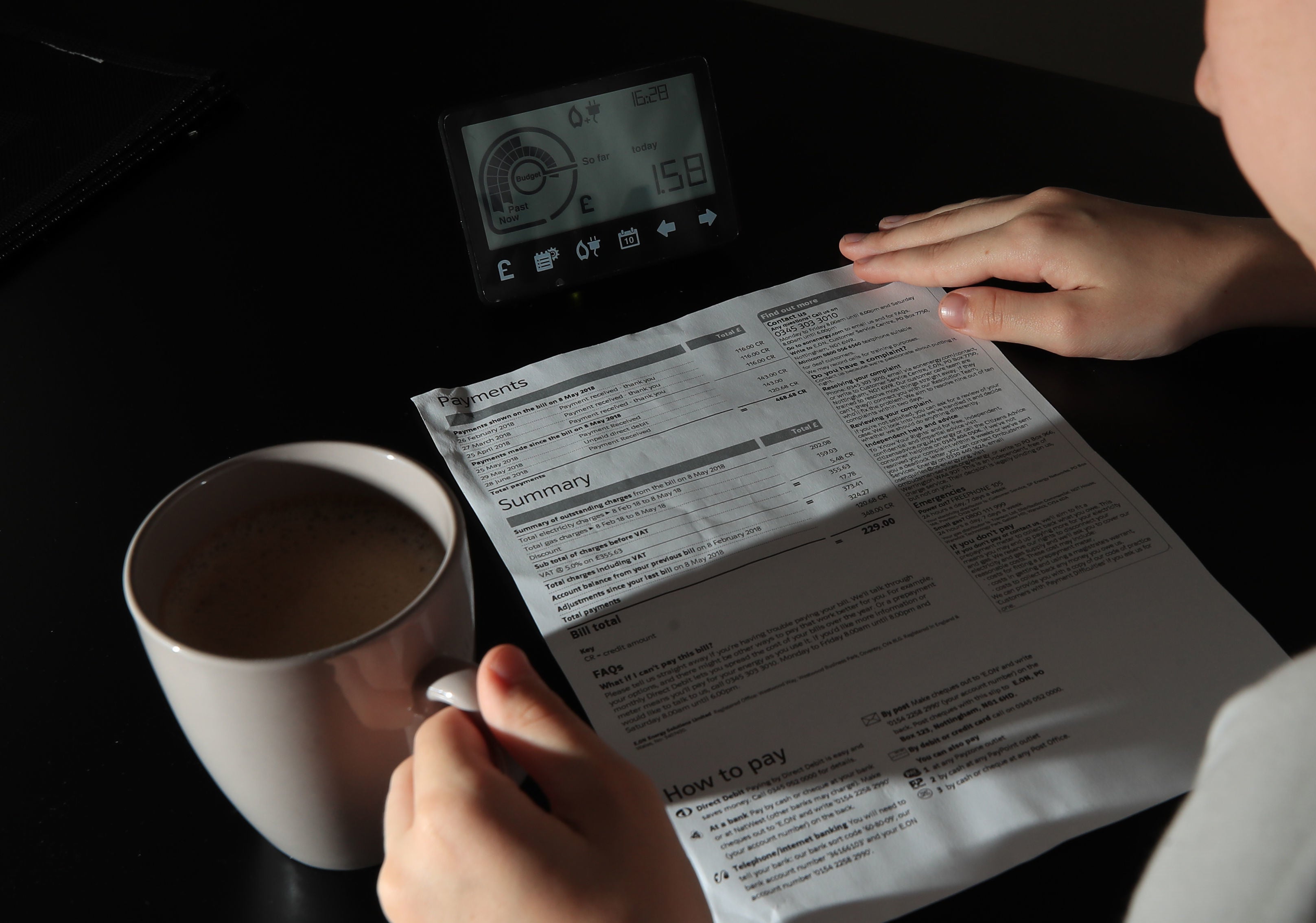Soaring inflation sees household incomes fall for record four quarters in a row
The ONS said the UK economy grew by an unrevised 0.8% in the first quarter, but revealed that household incomes fell 0.2% after surging inflation.

Your support helps us to tell the story
From reproductive rights to climate change to Big Tech, The Independent is on the ground when the story is developing. Whether it's investigating the financials of Elon Musk's pro-Trump PAC or producing our latest documentary, 'The A Word', which shines a light on the American women fighting for reproductive rights, we know how important it is to parse out the facts from the messaging.
At such a critical moment in US history, we need reporters on the ground. Your donation allows us to keep sending journalists to speak to both sides of the story.
The Independent is trusted by Americans across the entire political spectrum. And unlike many other quality news outlets, we choose not to lock Americans out of our reporting and analysis with paywalls. We believe quality journalism should be available to everyone, paid for by those who can afford it.
Your support makes all the difference.Household finances failed to keep up with soaring inflation once again at the start of the year, marking the first time real disposable income has fallen for four quarters in a row since records began, according to official figures.
The Office for National Statistics (ONS) said real household disposable income dropped 0.2% between January and March as income growth of 1.5% was outstripped by household inflation of 1.7%.
Household finances have now been under pressure for a straight year, with rising prices amid the cost-of-living crisis meaning income after inflation has fallen for a record four consecutive quarters.
The latest figures came as the ONS confirmed its earlier estimation that gross domestic product (GDP) – a measure of the size of the economy – rose by 0.8% in the first quarter of the year.
This marked a decline in growth from 1.3% in the previous three months, but means GDP remains 0.7% above the last quarter of 2019, before the pandemic struck.
Darren Morgan, director of economic statistics at the ONS, said: “Our latest estimate for economic growth in the first quarter is unrevised as a whole, showing the UK continued to recover from the pandemic.
“Both household incomes and spending rose in cash terms in the first quarter, leaving the rate of saving unchanged.
“However, once taking account of inflation, incomes fell again, for the fourth consecutive quarter.”
The more detailed GDP breakdown also shows that business investment fell by a downwardly revised 0.6% at the start of 2022, leaving it 9.2% below its pre-pandemic level.
There are mounting fears that the cost-of-living crisis could tip the UK into recession – as defined by two quarters in a row of falling output – as rocketing inflation sees households and businesses rein in spending.
Inflation has already reached a 40-year-high of 9.1% and is set to rise past 11% in the autumn.
Bank of England Governor Andrew Bailey said on Wednesday that soaring inflation will hit Britain harder than any other major economy during the current energy crisis and that output is likely to weaken earlier and be more intense than others.
On a month-on-month basis, GDP is already starting to show the impact of the cost crunch, with recent figures showing output fell in both March and April, by 0.1% and 0.3% respectively.
The economy is expected to shrink overall in the second quarter and experts are concerned the autumn jump in the energy price cap could lead to falling output in the following three months.
Martin Beck, at the EY Item Club, said: “The squeeze on household spending power has further to run, with the second quarter having seen both the energy price cap increase by more than 50% and a rise in personal taxation, while a further large rise in the energy price cap looking likely in October.
“So, with savings rates already below ‘normal’ levels, hopes of avoiding a consumer recession rest on households who accumulated ‘excess’ savings during the pandemic spending a good amount of those funds.”
ONS data also out on Thursday showed Britain’s current account deficit – the difference between the value of the goods and services the UK imports and the goods and services it exports – widened to a record £51.7 billion, or 8.3% of gross domestic product.
This was the biggest shortfall since records began in 1955, according to the ONS.
But it issued a warning over the figures, saying there was an impact of changes in post-Brexit data collection on trade in goods imports and foreign direct investment, which it is investigating.